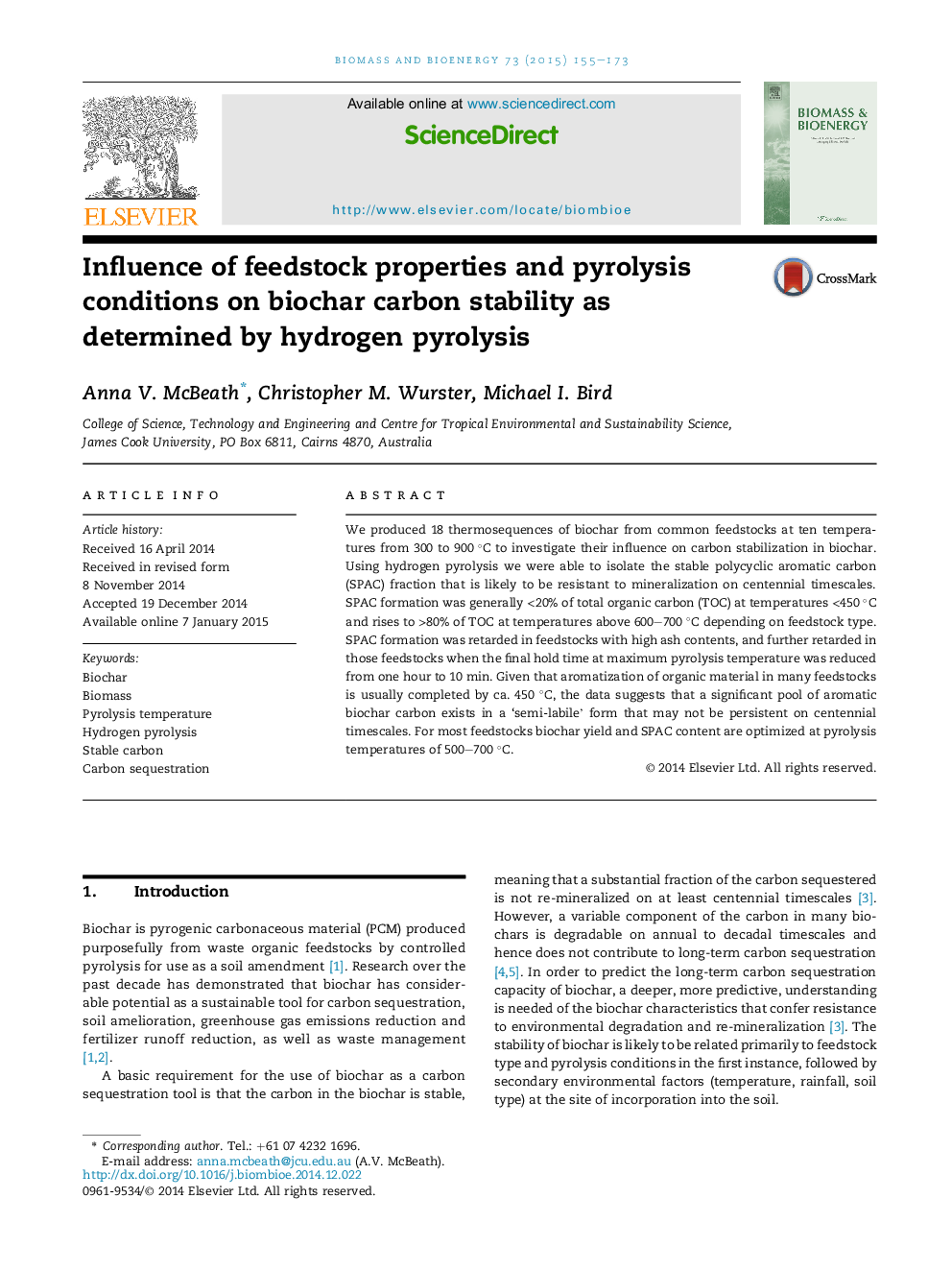| Article ID | Journal | Published Year | Pages | File Type |
|---|---|---|---|---|
| 7064024 | Biomass and Bioenergy | 2015 | 19 Pages |
Abstract
We produced 18 thermosequences of biochar from common feedstocks at ten temperatures from 300 to 900 °C to investigate their influence on carbon stabilization in biochar. Using hydrogen pyrolysis we were able to isolate the stable polycyclic aromatic carbon (SPAC) fraction that is likely to be resistant to mineralization on centennial timescales. SPAC formation was generally <20% of total organic carbon (TOC) at temperatures <450 °C and rises to >80% of TOC at temperatures above 600-700 °C depending on feedstock type. SPAC formation was retarded in feedstocks with high ash contents, and further retarded in those feedstocks when the final hold time at maximum pyrolysis temperature was reduced from one hour to 10 min. Given that aromatization of organic material in many feedstocks is usually completed by ca. 450 °C, the data suggests that a significant pool of aromatic biochar carbon exists in a 'semi-labile' form that may not be persistent on centennial timescales. For most feedstocks biochar yield and SPAC content are optimized at pyrolysis temperatures of 500-700 °C.
Related Topics
Physical Sciences and Engineering
Chemical Engineering
Process Chemistry and Technology
Authors
Anna V. McBeath, Christopher M. Wurster, Michael I. Bird,
